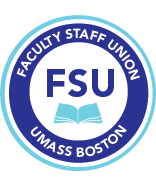The Point: Reading the Small Print on the Big Project
5/3/2021
[co-written this week by Professors Ken Reardon and Jeff Melnick]
Greetings, Colleagues:
Two weeks ago, Chancellor Suárez-Orozco sent the Campus Community a letter informing us that he was pleased to report the progress the Boston Planning and Development Agency was making in reviewing the Accordia Partners’ Dorchester Bay City proposal for the former Bayside Expo site. After encouraging us to remain actively engaged in this public review process, the Chancellor highlighted the project’s many benefits. Among these were the $235 million UMB will receive if it is fully permitted; new retail, commercial, academic office, life science and open spaces the project will create; and infrastructure improvements that its’ projected tax payments will help finance.
While the Chancellor’s project description sounds good at first glance, there are many reasons why the Faculty Staff Union, Faculty Council. Classified Staff Union, Professional Staff Union, and Graduate Employee Organization have joined with the College Republicans, College Democrats, the President and Vice-President of the Undergraduate Student Assembly, the Vice-President of the Higher Education Network of Massachusetts, and Dorchester Not For Sale to oppose the current Dorchester Bay City proposal.
Shortcomings of the Current Proposal
- The developers are proposing 5.9 million square feet of new construction (the equivalent of two Empire State Buildings) in a densely built community that already struggles with regular coastal flooding, intense traffic congestion, and unreliable public transit service.
- The developers plan to make 15% (too few) of the project’s on-site housing units available to those earning 60% (too high) of the Area Median Income which will be unaffordable to Harbor Point, Dorchester, and South Boston residents who are most vulnerable to gentrification and displacement pressures which this and other development projects being proposed for the area will intensify.
- The developers’ proposal features retail, commercial, life sciences, and academic office uses within eighteen mid-rise (average height of 12 stories) buildings, along with surface parking, to be located on both sides of Mt. Vernon Street. While the plan includes significant open space, it does not dedicate any space for public facilities, such as community centers, branch libraries, health clinics, senior centers or religious institutions essential to creating and maintaining healthy neighborhoods.
- The developers’ preliminary designs make little effort to establish a physical connection to its nearest neighbors by failing to provide a single pedestrian walkway or service street connecting Harbor Point Homes with the Dorchester Bay City site. In addition, the plan’s coastal flooding mitigation proposals threaten to increase the risk their neighbors may face.
- While the developers describe Dorchester Bay City as an exciting new resource for Harbor Point, Dorchester, and South Boston residents, workers, business operators, and service providers, this is unlikely to be the case without the establishment of a “cross-subsidy” program through which its market rate tenants pay a modest rental premium to provide conveniently sited and affordably priced spaces for valued community businesses and non-profit service providers.
- The project will, if fully permitted, bring thousands of additional vehicles to Harbor Point each day along roadways and a rotary that rank among Boston’s most congested and sea-rise-threatened thoroughfares. While the developers emphasize their plans to transform Mt. Vernon into a “complete and smart street” where walking and biking will be encouraged and technology will facilitate traffic flow, a detailed plan to achieve these outcomes has not been provided and the state and federal funds needed to upgrade local roads and the bus, train, and commuter rail services upon which this project depends cannot be assured.
- Many of us first experienced Bayside as a temporary parking facility during UMB’s recent period of construction which caused serious disruptions for all of those commuting to our campus. Without modification, Dorchester Bay City promises to produce similar commutation challenges over a ten-year period.
For these and other reasons, leaders of our campus’ organized student, staff, and faculty unions and assemblies have repeatedly asked the UMB administration to urge the developers to negotiate a Community Benefits Agreement with local leaders that address these issues. Instead of supporting such an effort, which would align with the Chancellor’s commitment to strengthening UMB as an antiracist and health promoting institution, he appears to be endorsing the project, in its current form, notwithstanding its many shortcomings.
What You Can Do
Simply stated, the current Dorchester Bay City proposal reflects the kind of gross monetization of publicly owned land for private and institutional benefit at the expense of poor and working-class Bostonians that UMass Boston has historically opposed because it violates our urban mission. If you feel our campus has a moral responsibility as the largest “anchor institution” in the community and the major financial beneficiary of this development to oppose this project in its current form, we encourage you to take the following actions:
- Write to the Chancellor to demand a better plan from the University of Massachusetts Building Authority and its developer (Chancellor@umb.edu).
- Sign our coalition’s on-line petition for a more equitable, sustainable, and just Dorchester Bay City (link to it at: http://chng.it/wXWXh5qQnV).
- Write Boston’s Acting Mayor Kim Janey urging her to encourage the developer to address these concerns through a legally enforceable Community Benefits Agreement negotiated with a representative group of community stakeholders (Mayor@boston.gov).
Sincerely,
Ken Reardon
(on behalf of the UMB Coalition Against Gentrification)
Professor of Urban Planning
Director, Urban Planning and Community Development
Jeff Melnick
American Studies Department
Communications Director, Faculty Staff Union Executive Committee
For information on the FSU, links to our contract and bargaining updates, and a calendar of events, see the FSU webpage
